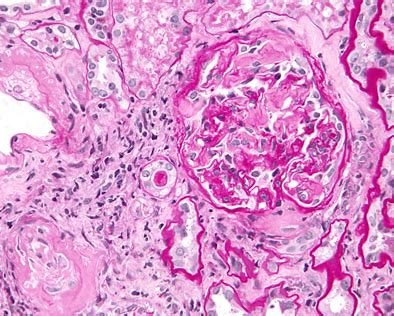YolTech Therapeutics Advances YOLT-201 Gene-Editing Therapy to Dose-Expansion Phase in ATTR Amyloidosis Clinical Trial
23 December 2024 | Monday | News

Image Source : Public Domain
YolTech Therapeutics announced updated data from its ongoing Phase I/IIa clinical trial of YOLT-201, a first-in-class CRISPR/Cas9-based in vivo gene-editing therapy for ATTR amyloidosis. The trial has completed dosing in eight participants, including six patients with ATTR amyloidosis with polyneuropathy (ATTR-PN) and two patients with ATTR amyloidosis with cardiomyopathy (ATTR-CM), across two dose cohorts. No Grade 3 adverse events (AEs), dose-limiting toxicities (DLTs), or serious adverse events (SAEs) leading to treatment discontinuation have been observed.
All ATTR-PN participants across both dose cohorts have completed dosing and follow-up. Preliminary data indicate that participants in the higher dose cohort achieved over 90% reductions in circulating TTR protein levels, with the therapy demonstrating robust safety and tolerability.
Following discussions between investigators and the study sponsor during the Safety Review Committee (SRC) meeting, the higher dose was identified as the optimal biologically active dose (OBD) based on the available safety and efficacy data. Consequently, the SRC has decided to conclude dose-escalation studies for ATTR-PN patients and advance directly to the dose-expansion phase, further evaluating YOLT-201's therapeutic potential in a broader patient population.
YT-YOLT-201-101 trial is a multicenter, open-label, single-dose phase I/IIa clinical study evaluating the safety, tolerability, pharmacokinetics, and pharmacodynamic parameters of YOLT-201 in patients with transthyretin amyloidosis polyneuropathy (ATTR-PN) and transthyretin amyloidosis cardiomyopathy (ATTR-CM). The trial consists of two stages: the first stage is an open-label, single-dose, dose-escalation study to determine the optimal biological dose (OBD) of YOLT-201; the second stage is an open-label, single-dose, dose-expansion study to preliminarily assess the safety and preliminary efficacy of YOLT-201 at the OBD.
Most Read
- How Does GLP-1 Work?
- Innovations In Magnetic Resonance Imaging Introduced By United Imaging
- Management of Relapsed/Refractory Multiple Myeloma
- 2025 Drug Approvals, Decoded: What Every Biopharma Leader Needs to Know
- BioPharma Manufacturing Resilience: Lessons From Capacity Expansion and Supply Chain Resets from 2025
- APAC Biopharma Review 2025: Innovation, Investment, and Influence on the Global Stage
- Top 25 Biotech Innovations Redefining Health And Planet In 2025
- How Health Systems Are Reshaping Drug Adoption, Partner Models, and Market Access in 2026
- The New AI Gold Rush: Western Pharma’s Billion-Dollar Bet on Chinese Biotech
- Single-Use Systems Are Rewiring Biopharma Manufacturing
- The State of Biotech and Life Science Jobs in Asia Pacific – 2025
- Asia-Pacific Leads the Charge: Latest Global BioSupplier Technologies of 2025
- Invisible Threats, Visible Risks: How the Nitrosamine Crisis Reshaped Asia’s Pharmaceutical Quality Landscape
Bio Jobs
- Sanofi Turns The Page As Belén Garijo Steps In And Paul Hudson Steps Out
- Global Survey Reveals Nearly 40% of Employees Facing Fertility Challenges Consider Leaving Their Jobs
- BioMed X and AbbVie Begin Global Search for Bold Neuroscience Talent To Decode the Biology of Anhedonia
- Thermo Fisher Expands Bengaluru R&D Centre to Advance Antibody Innovation and Strengthen India’s Life Sciences Ecosystem
- Accord Plasma (Intas Group) Acquires Prothya Biosolutions to Expand Global Plasma Capabilities
- ACG Announces $200 Million Investment to Establish First U.S. Capsule Manufacturing Facility in Atlanta
- AstraZeneca Invests $4.5 Billion to Build Advanced Manufacturing Facility in Virginia, Expanding U.S. Medicine Production
News











